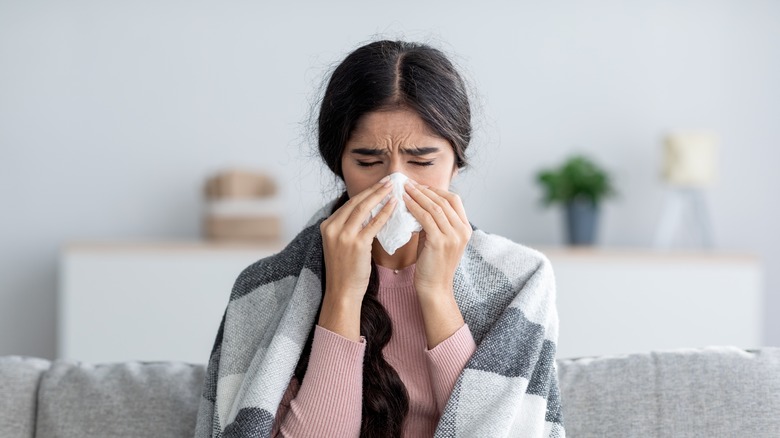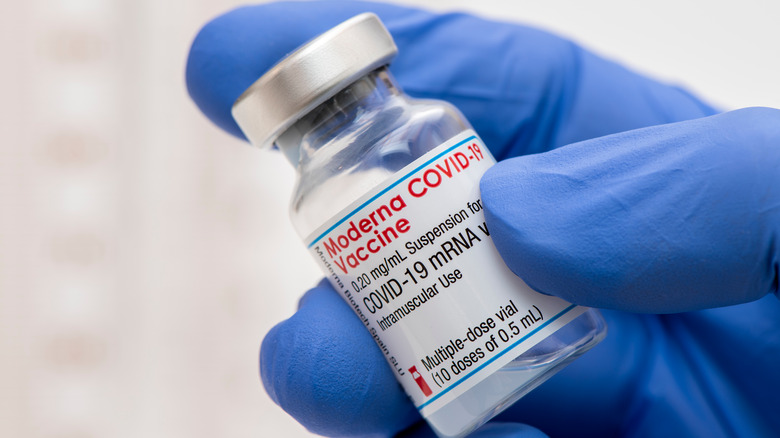What Are Your Chances Of Getting A Breakthrough COVID Infection?
Since COVID-19 vaccines first became available, more than 11.5 billion vaccines have been administered worldwide, including 572 million in the United States (via Bloomberg). Although COVID-19 vaccinations have provided a safeguard against contracting the virus, no vaccine is 100% effective, according to the Centers for Disease Control and Prevention (CDC). Therefore, some fully vaccinated people become infected with COVID-19. This is known as a breakthrough COVID infection.
According to Dr. Devang Sanghavi, a member of the American Medical Association (AMA), a breakthrough COVID infection refers to the "detection of SARS-CoV-2 RNA or antigen in respiratory specimen collected from a person 14 days after receipt of all recommended doses" of either the Pfizer, Moderna, or Johnson & Johnson COVID-19 vaccines. Not every fully vaccinated person experiences a breakthrough COVID-19 infection, so what are your own chances of experiencing one? A new study has investigated the likelihood of fully vaccinated individuals contracting COVID-19.
People fully vaccinated with Moderna vaccine are least likely to get breakthrough infection
A study recently published in the journal Viruses followed 8 million fully vaccinated adults in Belgium for an average of 150 days following the 2-week period post-vaccination (via US News). The study found that those who received a viral vector vaccine like AstraZeneca or Johnson & Johnson were more likely to have a breakthrough infection than those who received an mRNA vaccine like Pfizer or Moderna. Participants who received the Moderna vaccination had a 32% lower risk of experiencing a breakthrough infection than those who received Pfizer. Participants who had been infected with COVID-19 before receiving the vaccine were 77% less likely to experience a breakthrough infection.
The age and occupation of participants also seemed to play a role in the study's results. The rate of breakthrough infections was higher in the age range of 18 to 64 than 65 and older, likely due to differences in behavior, the researchers noted. Healthcare workers were significantly less likely to experience a breakthrough infection than participants who did not work in healthcare. Researchers believe that the use of PPE, along with higher vaccination rates, reduced the rate of breakthrough infections among healthcare workers. According to US News, study author Veerle Stouten stated, "The majority of the breakthrough infections included in the study occurred during the period when the Delta variant was dominant." She also noted that a similar pattern of breakthrough infection is expected with the Omicron variant.


